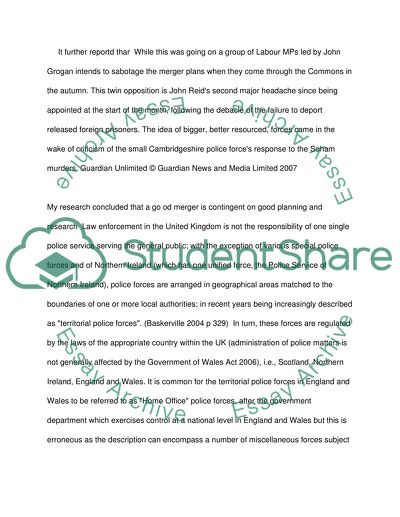Cite this document
(The West Yorkshire Police and a Merger Assignment, n.d.)
The West Yorkshire Police and a Merger Assignment. Retrieved from https://studentshare.org/sociology/1504050-west-yorkshire-police-merger
The West Yorkshire Police and a Merger Assignment. Retrieved from https://studentshare.org/sociology/1504050-west-yorkshire-police-merger
(The West Yorkshire Police and a Merger Assignment)
The West Yorkshire Police and a Merger Assignment. https://studentshare.org/sociology/1504050-west-yorkshire-police-merger.
The West Yorkshire Police and a Merger Assignment. https://studentshare.org/sociology/1504050-west-yorkshire-police-merger.
“The West Yorkshire Police and a Merger Assignment”, n.d. https://studentshare.org/sociology/1504050-west-yorkshire-police-merger.


